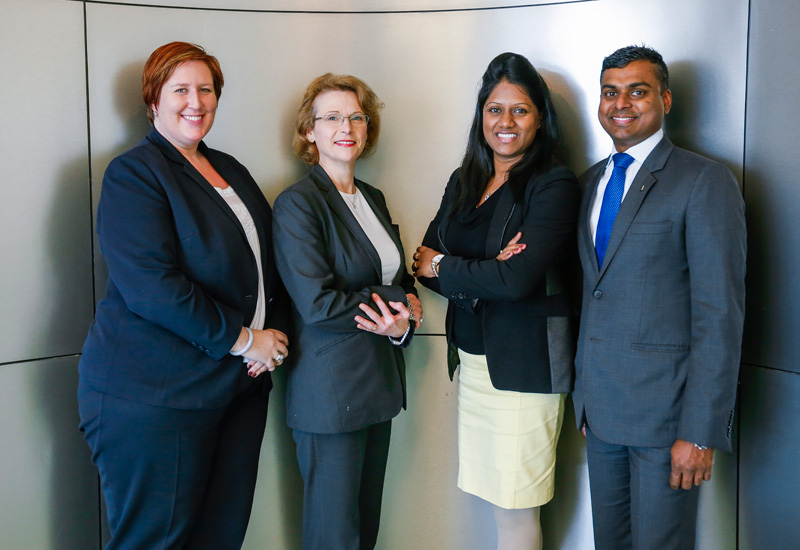Meet the advisory panel for the upcoming Hotelier Middle East conference, and find out what is keeping the region's housekeepers busy.
The experts:
Pamini Hemaprabha, executive housekeeper,Emirates Palace, and rooms division specialist for IMEA (India, Middle East & Africa) region, master trainer worldwide, Kempinski Hotel The winner of ‘Best Housekeeper 2014’ at the Hotelier Middle East Awards, Hemaprabha started her career at the ITC Park Sheraton & Towers in Chennai, India in 2003 and quickly moved through the ranks.
Tatjana Ahmed, housekeeping manager, Grand Hyatt Dubai Ahmed started her career in hospitality management in 1983 in Germany and moved to Al Ain InterContinental in 1989. She is a member of the “council of experts” for Hyatt International, giving her the opportunity to assist sister hotels in the region during the pre-opening stage.
Nadine O’Connor, housekeeping manager, Jumeirah Creekside Hotel, Dubai O’Connor studied hospitality management in Australia before working for Accor, Rotana and Dusit. She was highly commended in the 2010 Middle East Hotelier Awards and has been with Jumeirah Creekside Hotel since its opening in 2012.
Lakmal Mawella, executive housekeeper, The Palace Downtown Dubai Mawella has more than 14 years experience in housekeeping with 12 of those years spent in Dubai. Originally from Sri Lanka where he received a diploma in hospitality management, Mawella has been with Emaar Hospitality Group since 2008.

| Advertisement |
After a successful outing in 2015, Hotelier Middle East is set to host its fourth annual Executive Housekeeper Forum on May 3 at Grosvenor House Dubai. The event will bring together executive housekeepers, directors of rooms, and laundry managers from the region’s five- and four-star properties. Together they will reflect on how to tackle key operational challenges, meet guest expectations, and drive the efficiency of their teams.
Helping Hotelier Middle East to set the agenda were experts in their field: Emirates Palace executive housekeeper and Kempinski rooms division specialist for IMEA and master trainer Pamini Hemaprabha; Grand Hyatt Dubai housekeeping manager Tatjana Ahmed; Jumeirah Creekside Hotel housekeeping manager Nadine O’Connor; and, Palace Downtown Dubai executive housekeeper Lakmal Mawella.
The panel gathered together at ITP Publishing’s office in Dubai Media City on March 2, 2016 to discuss the most important issues facing the industry today.
Ahmed starts by saying one subject all housekeepers are thinking about is infection control. “Not only cleaning for appearance but cleaning for health, and how we train our people to do that. We are looking at what we use, what gadgets, what supplies, and what is most effective.”
She says that long-term sanitation is another trend worth discussing, with chemicals now being used which have long-term effectiveness against bacteria. “It started in hospitals but now it’s moving into hotels,” she adds. O’Connor agrees and adds that touch-points are needed in the back-of-house as well, as that’s where there is also huge amounts of traffic.
Ahmed continues: “Outsourcing of soft services is becoming bigger and bigger, more hotels are outsourcing and becoming more demanding. It’s not only labour supply, we want to have trained people. There are a few companies coming on board now, who are providing better trained staff. And it’s the cost factor — they are around 30-50% more expensive.”
Hemaprabha says on the topic of casual labour, that brainstorming about the correct ratio between in-house and outsourced labour is essential. “Because that benchmark has never been created, people are vague about it. Companies should come forward and set the ratio,” she says, and reveals that Kempinski now has certain ratios set from corporate level. O’Connor adds that another issue is productivity: “The productivity levels of casual labour differ quite dramatically to the productivity levels of our permanent employees.”
However, a change may be coming with regard to payment of the outsourced labour force. Hemaprabha reveals that many suppliers have said casual labour can now be remunerated not on a daily or hourly basis, but on a credit system. “That’s better because you don’t enjoy the same kind of occupancy [across] all the months. So if you have 30% occupancy, you pay less.” This means that with the new system, the labour force is paid according to the amount of work completed.
Visa issues were also put on the table — the regional market, the panel says, operates differently to other areas of the world where housewives can be hired to work for half a day. Hemaprabha adds: “We are left with a very limited option to work with. There’s still a long way to go.”
O’Connor highlights that in these situations it’s important to plan ahead, rather than deciding how much casual labour is needed at the last minute.
Article continues on next page...









 Search our database of more than 2,700 industry companies
Search our database of more than 2,700 industry companies









